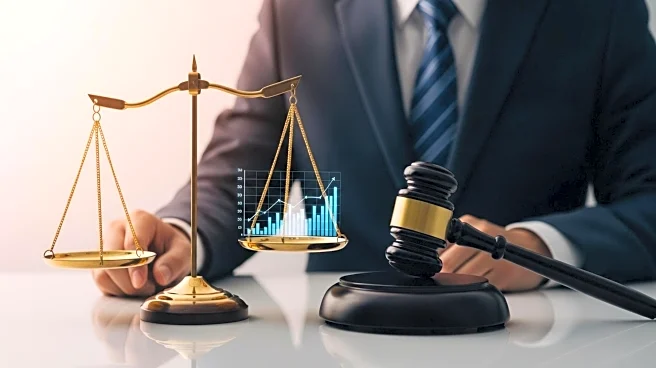What is the story about?
What's Happening?
C3.ai, Inc. is currently facing a class action lawsuit filed by Pomerantz LLP, which alleges securities fraud and other unlawful business practices. The lawsuit is on behalf of investors who purchased or acquired C3 securities between February 26, 2025, and August 8, 2025. The legal action follows C3.ai's announcement of disappointing preliminary financial results for the first quarter of fiscal 2026, which led to a significant drop in the company's stock price. The company attributed the poor results to a reorganization with new leadership and health issues affecting its CEO, Thomas Siebel. Investors have until October 21, 2025, to request the Court to appoint them as Lead Plaintiff in the case.
Why It's Important?
The lawsuit against C3.ai highlights the potential risks and consequences of corporate governance issues and transparency in financial reporting. If the allegations of securities fraud are proven, it could lead to significant financial penalties for the company and impact its reputation in the tech industry. This case also underscores the importance of investor protection and the role of class action lawsuits in holding companies accountable for their actions. The outcome of this lawsuit could influence investor confidence and affect C3.ai's stock performance and market position.
What's Next?
Investors involved in the class action have until October 21, 2025, to seek appointment as Lead Plaintiff. The legal proceedings will likely involve detailed investigations into C3.ai's financial disclosures and management practices. Depending on the findings, the company may face regulatory scrutiny and potential changes in its leadership structure. Stakeholders, including investors and industry analysts, will be closely monitoring the developments in this case to assess its impact on C3.ai's future operations and financial health.
Beyond the Headlines
This lawsuit may prompt broader discussions on corporate accountability and the ethical responsibilities of tech companies in financial reporting. It could lead to increased regulatory oversight in the tech sector, particularly concerning transparency and governance practices. The case also raises questions about the impact of leadership changes and health issues on corporate performance, potentially influencing how companies manage executive transitions and communicate with investors.















